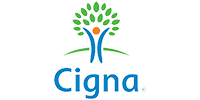
Stop The Stigma: Raising Awareness About Addiction In Your Community
by Addiction Center | ❘
- Categories:
- Alcohol
- Education
- Prevention
- Treatment Centers
- News
- Prescription Drugs
Reducing The Stigma Of Addiction
Every day, leaders across the nation look for new ways to raise awareness and fight the growing addiction epidemic.
States, cities, and neighborhoods are now taking steps to educate community members about drug and alcohol addiction through different events such as:
- Galas
- Contests
- Festivals
- Rallies
- Walks/Runs
- Sports competitions
- Conferences
- Cookouts
The activities bring people together in an effort to prevent non-medical uses of drugs. Many events provide materials which encourage an open dialogue between family members and friends about substance and alcohol abuse. Some events also discuss how to dispose of old drugs, how to safely store medications, and what to discuss with your doctor before taking new prescriptions.
“Instead of reacting to what might happen, we decided to proactively increase awareness as to the issues that we’re seeing statewide in the hopes that will help save lives.
Paid Advertising. We receive advertising fees from purchases through the BetterHelp links below.
Online Addiction Counseling
Get professional help from an online addiction and mental health counselor from BetterHelp.
Start receiving support via phone, video, or live-chat.
- Personalized Matching Process
- Easy Online Scheduling
- 30,000+ Licensed Therapists
- Personalized Matching Process
- Easy Online Scheduling
- 30,000+ Licensed Therapists
Getting Involved: Raising Awareness About Addiction Treatment Options
Volunteering your time with local organizations is a great way to raise awareness about drug and alcohol abuse, prevention, and treatment.
Millions of lives have been touched through the events that raise awareness about addiction and the generosity of individual donations.
Here are several ways you can become an advocate in your community:
Participate In College Campus Awareness Events
Drug and alcohol abuse is a growing trend among college students. Rather than playing catch up, college campuses are working to get ahead by offering classes and groups that discuss the risks of addiction.
Some schools are getting creative with their efforts through entertainment. For instance, activities like intramural sports, movie nights, and other social events offer students ways to have fun outside of the classroom.
Other colleges, including the University of North Carolina Wilmington (UNCW), are planning campus events around the topic of addiction and recovery. Just last year, UNCW hosted its inaugural Celebrate Recovery event to raise awareness for students who are battling addiction and give them a chance to share their recovery stories.
The primary goal for this event is to change perception towards addiction, as well as generate awareness towards the presence of collegiate recovery communities on university campuses today.
Join The Voices During Recovery Month
Every September, the Substance Abuse and Mental Health Services Administration (SAMHSA) sponsors Recovery Month to increase national awareness and understanding of substance use issues.
Although campaigns change every year, the message of Recovery Month remains the same:
- Behavioral health is essential to health.
- Prevention works.
- Treatment is effective.
- People recover.
During Recovery Month, thousands of addiction programs and groups hold events to spread the message about treatment and recovery.
The theme for Recovery Month 2016 is Join the Voices for Recovery: Our Families, Our Stories, Our Recovery! Activities will address the importance of family support during the recovery process. Individuals, family members, and friends are invited to share their personal stories and successes about their road to recovery.
This is a time to really focus on the fact that recovery is possible, that 20 million Americans have gotten their lives back by accessing the many different bridges to recovery that are available across the nation.
Make A Donation To The National Council On Alcohol And Drug Dependence, Inc.
For more than 70 years, the National Council on Alcohol and Drug Dependence, Inc. (NCADD) has supported those affected by a drug or alcohol addiction. The organization provides assistance to the individuals and families in need of receiving treatment.
Making a donation to NCADD may include:
- General donation: Support the work and mission of the organization which allows them to continue educating the public about addiction, prevention, and recovery.
- Memorial donation: A contribution made in memory of someone in your life. Your donation will provide hope to those who need it most.
- Tribute donation: A tribute of a special occasion like a recovery anniversary, graduation, or birthday. It offers a way to honor a family member or friend while helping others.
Nationwide, 1 out of every 3 households is affected by addiction in some way. Whether you personally know someone or not, we can all offer support and encouragement.
The NCADD also has a number of affiliate organizations located throughout the US that are always looking for volunteers. Some of the affiliates provide different services to reach out to those struggling with an addiction. Volunteer with public awareness campaigns, prevention programs in schools, interventions, and advocacy groups to take a stand in your community.
Treatment providers work with many insurances, including:




Check if my insurance covers rehab
Addiction Center is not affiliated with any insurance.
Communities Can Come Together To Fight Addiction
You play a crucial role in the fight against addiction. We all do. Let’s work together to stop addiction from impacting any more lives once and for all.
Find prevention and recovery events in your community today. It’s time to say “so long” to the stigma.
Last Updated:
Author
Addiction Center

-
Since 2014, Addiction Center has been an informational web guide for those who are struggling with substance use disorders and co-occurring behavioral and mental health disorders. All content included on Addiction Center is created by our team of researchers and journalists. Our articles are fact-based and sourced from relevant publications, government agencies and medical journals.
- More from Addiction Center